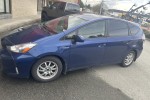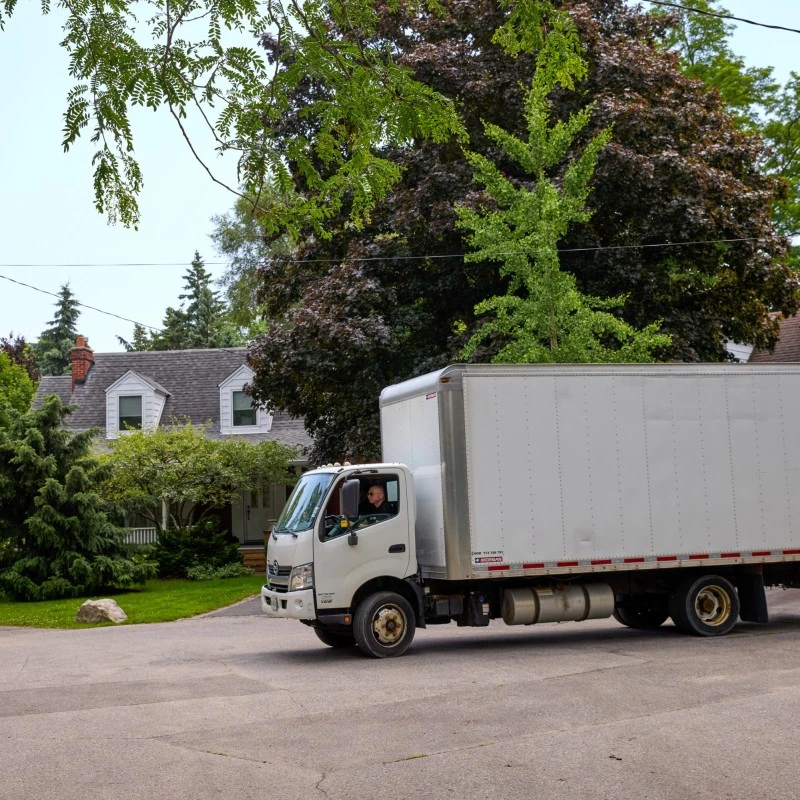Canada's Most Popular Motorcycle Routes


Travelling across Canada’s epic terrain almost feels like being in a live-action painting. The landscapes and vistas are beyond beautiful and dramatic, and there is iconic wildlife around every corner.
Another bonus is the friendly, welcoming culture that the majority of Canadians uphold. Canadians are generally welcoming and hospitable to tourists, always ready to help with directions and give local tips and recommendations.
The motorcycle is an ideal vehicle for travel in Canada during spring, summer and fall. Canada is home to several treasured motorcycle routes, and to say that the surrounding landscapes are unforgettable is a major understatement.
This article serves as a guide to the most popular motorcycle routes in Canada, complete with special recommendations for activities and important stops along the way. The routes include:
Pacific Rim Highway, B.C.

If you want to combine surfing, hiking, wildlife viewing and ancient culture (and trees) into your trip, Pacific Rim Highway is the place to ride.
Also known as Highway 4, this Vancouver Island route stretches 163 kilometres and connects the towns of Parksville and Tofino. Both towns are known for their sweeping sandy beaches and epic ocean views. The route passes through great lengths of lush, temperate rainforest and mountains, allowing access to unique ecosystems and diverse wildlife.
Along the way is Cathedral Grove, a famous hiking trail located in MacMillan Provincial Park, and is home to ancient, monumental Douglas fir and red cedar trees. Some of the old growth trees are older than 800 years and the massive circumference of their trunks is an unforgettable sight.
Near the end of the route is Long Beach, part of Pacific Rim National Park Reserve. It's known for its sandy beaches that go on for kilometres and is also one of the only places in Canada where you can go surfing.
The final stop is Tofino, a classic, laid-back B.C. town known for its artisans, outdoor adventuring, and strong Nuu-chah-nulth culture.
Okanagan/West Kootenay Run, B.C.

Perfect for wine lovers and mountain enthusiasts, The Okanagan/West Kootenay Run connects the two distinct regions, offering the perfect balance of picturesque vineyards, alpine mountain passes and gorgeous river valleys.
The route is approximately 700 kilometres, starting in Kelowna as a loop through the Okanagan and Kootenays. Major Roads covered are Highways 97, 3, 6, and 33.
The Okanagan Valley is renowned for its wineries, vineyards and orchards. There are endless opportunities for wine and cider tastings to sample the famous libations produced in the Okanagan, just remember, safety first–don’t drink and ride.
Travel through the Monashee and Selkirk mountains for an incredible journey through mountain passes and pristine ecosystems.
There are some cultural highlights along the way. The bustling city of Kelowna sits on Okanagan Lake and offers excellent shopping and nightlife. Historic Nelson has a rich past due to mining, logging and cannabis production, and is full to the brim with artisans and creative types. The town of Nakusp is surrounded by naturally occurring hot springs to soak in after a long ride, adding appeal to cooler, shoulder-season riding.
Home to Canada’s only desert, the Okanagan Valley remains relatively mild in the winter. On the other hand, the mountain passes on this route are dangerous due to snow and ice. Winter riding is not recommended.
READ: What are the most popular motorcycles in Canada?
Icefields Parkway, AB

There may not be a better way to experience the Canadian Rocky Mountains than riding through them on a motorcycle. This incredible scenic route connects Jasper and Banff National Parks. Over a distance of 232 kilometres, the highway offers unmatched views of glaciers, turquoise glacier-fed lakes, and towering mountain peaks.
The route starts in Jasper and ends in Lake Louise and covers mountain terrain, glaciers, lakes and forests. The trip passes by the famous Athabasca Glacier, one of the most visited glaciers in North America.
Along the way, you may encounter bears (both black and grizzly), elk, moose, bighorn sheep, and mountain goats. If you decide to go hiking, It's imperative to:
-
Remember to respect and maintain a safe distance from all wildlife. You are the visitor here, not them.
-
Carry bear spray and know how to use it.
-
Make loud noises while exploring to avoid surprising bears.
-
Be cautious when driving, especially at dawn and dusk when wildlife is more active.
-
Drive the speed limit and always watch for animals on the road.
The Gaspé Peninsula, QC
 For the history buffs and nature-loving riders, this route takes motorcyclists all around the Gaspé Peninsula, which starts and ends in Quebec City and covers approximately 1,235 Kilometres along route 132.
For the history buffs and nature-loving riders, this route takes motorcyclists all around the Gaspé Peninsula, which starts and ends in Quebec City and covers approximately 1,235 Kilometres along route 132.
The route hugs amazing coastal cliffs and is a great way to catch views of the Gulf of St. Lawrence. Small villages with strong Acadian culture are seen all along the route.
Percé Rock is a famous and massive rock formation in the Gulf of St. Lawrence. Forillon National Park is at the eastern tip of the peninsula, and is perfect for hiking, wildlife sightings and exploring historical sights.
Acadian culture is alive and well in and around Quebec city, with the added bonus of museums, music events and dancing. Quintessential Canadian cuisine is offered in the form of seafood dishes, poutine and maple products.
During winter, cold and snowy conditions dominate the peninsula, and motorcycle riding is not encouraged.
Fundy Coastal Drive, NB
 It’s rare to meet someone who doesn’t enjoy their trip to Canada’s east coast. This scenic, coastal route in New Brunswick runs along the Bay of Fundy.
It’s rare to meet someone who doesn’t enjoy their trip to Canada’s east coast. This scenic, coastal route in New Brunswick runs along the Bay of Fundy.
Fun fact! The Bay of Fundy has the world's highest tides, with tidal variations up to 16 metres, making the tidepool exploring exceptionally unique.
This route starts in Moncton and ends in Saint John, with Route 114 and 1 being the major roads. The entire trip is around 300 kilometres of gorgeous coastal scenery.
Geology lovers take note: Hopewell Rocks is full of unique, towering flowerpot rock formations. It is a must-see, where visitors can walk on the ocean floor during low tide and kayak around the rocks during high tide. For the hiking enthusiasts, Fundy National Park features forests, waterfalls, and over 120 kilometres of hiking trails.
The Bay of Fundy is the place for epic whale watching. There are numerous opportunities to see humpback, minke, and fin whales, as well as dolphins and seals.
Winter is extreme here. While the coastal scenery can be beautiful in the snow, winter is not recommended for motorcycle rides due to icy roads and harsh weather.
The Viking Trail, NFL/Lab
 Viking history is rich along this Newfoundland/Labrador route that runs from Deer Lake to St. Anthony. The main road is Route 430 and the entire route runs approximately 489 kilometres.
Viking history is rich along this Newfoundland/Labrador route that runs from Deer Lake to St. Anthony. The main road is Route 430 and the entire route runs approximately 489 kilometres.
Enjoy panoramic views of the Gulf of St. Lawrence while taking in the rich Viking history, including the L’Anse aux Meadows, the first known European settlement in North America.
Gros Morne National Park is a UNESCO World Heritage Site, full of fjords, lush forests, and rare geological formations.
The National Historic Site of L’Anse aux Meadows is a reconstructed Viking settlement where Norse explorers landed over 1,000 years ago. Guided tours and interpretive displays create an immersive glimpse into the lives of ancient Vikings who arrived in North America long before Christopher Columbus.
Newfoundlanders know how to celebrate. Joyful, energetic Newfoundland music is found in local pubs and cultural centres everywhere, featuring folk tunes and sea shanties that are a significant part of maritime culture.
Winter conditions are harsh, with heavy snow and icy roads. Many tourist facilities close for the season. Winter riding is not recommended.
READ: How Much Would it Cost to Ship a Motorcycle?
Dempster Highway, YK/NWT
 This route is probably the most unique adventure on the list due to its extreme remoteness and vast, pristine wilderness. The Dempster Highway stretches from Dawson City, YK to Inuvik, NWT, extending above the Arctic Circle. Highways include YK Highway 5 and NWT Highway 8, and the route runs approximately 740 kilometres.
This route is probably the most unique adventure on the list due to its extreme remoteness and vast, pristine wilderness. The Dempster Highway stretches from Dawson City, YK to Inuvik, NWT, extending above the Arctic Circle. Highways include YK Highway 5 and NWT Highway 8, and the route runs approximately 740 kilometres.
In the tundra you will see plants and wildlife that you can’t see anywhere else. The route passes through remote and untouched wilderness, offering a sense of solitude that is hard to find elsewhere in our modern, heavily-populated world.
Tombstone Territorial Park is located at the beginning of the route, and you can see mountain peaks, colourful tundra and a plethora of hiking opportunities. The Arctic Circle Crossing makes for a good story and photo op.
Note that the entire route is unpaved gravel and dirt roads, which can be challenging to navigate, especially in wet conditions. Like all northern highways, services and facilities are sparse along the way. Be well-prepared with supplies, fuel, and emergency equipment.
June to September is the recommended time frame to ride, just be prepared to experience armies of mosquitoes in the summer and unpredictable, erratic weather changes.
Remote northern travel checklist:
-
Carry extra fuel, food, water, spare tires, and an emergency kit.
-
Pack warm, layered clothing.
-
Check for any required permits and get up-to-date information on road conditions and weather from local authorities before setting out.
READ: Reliable Motorcycle Shipping in Canada
What do our customers say?




























